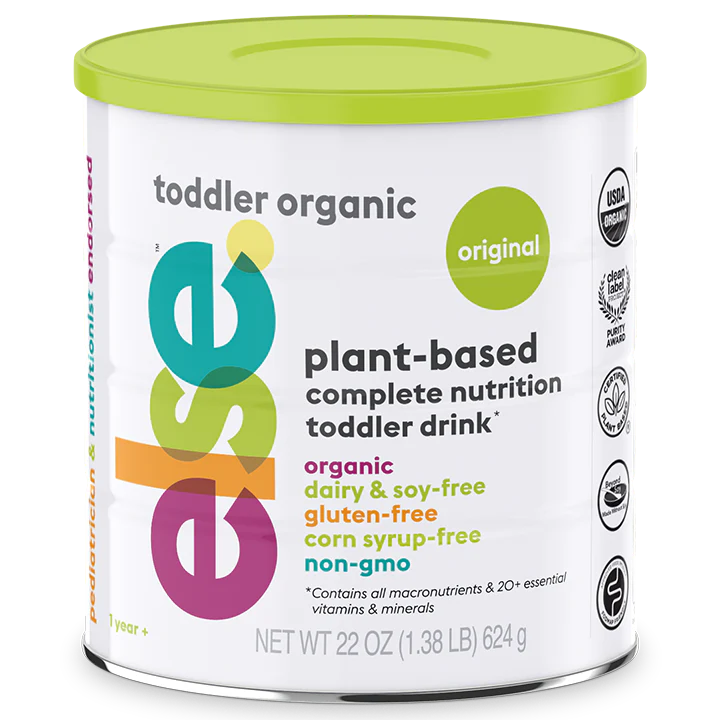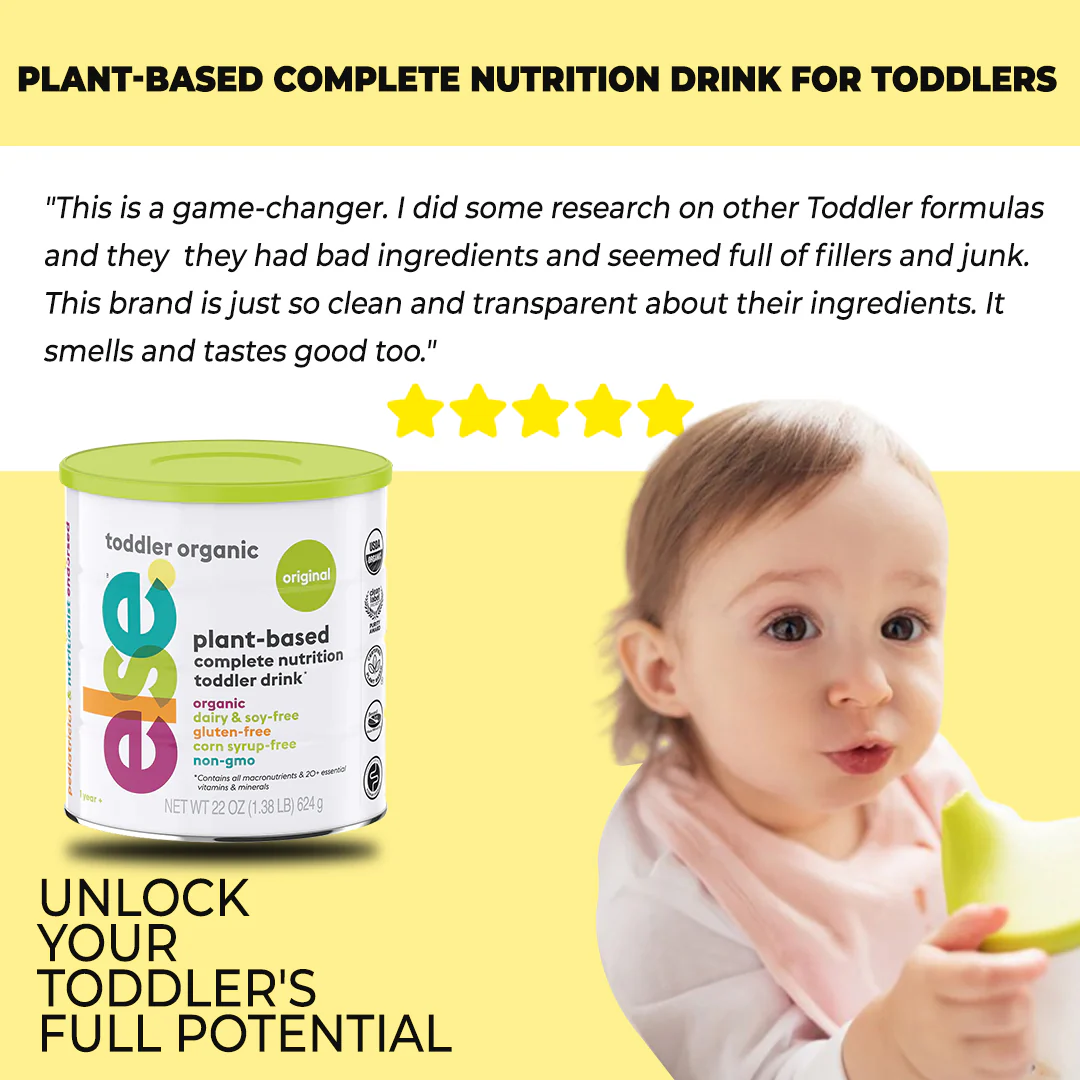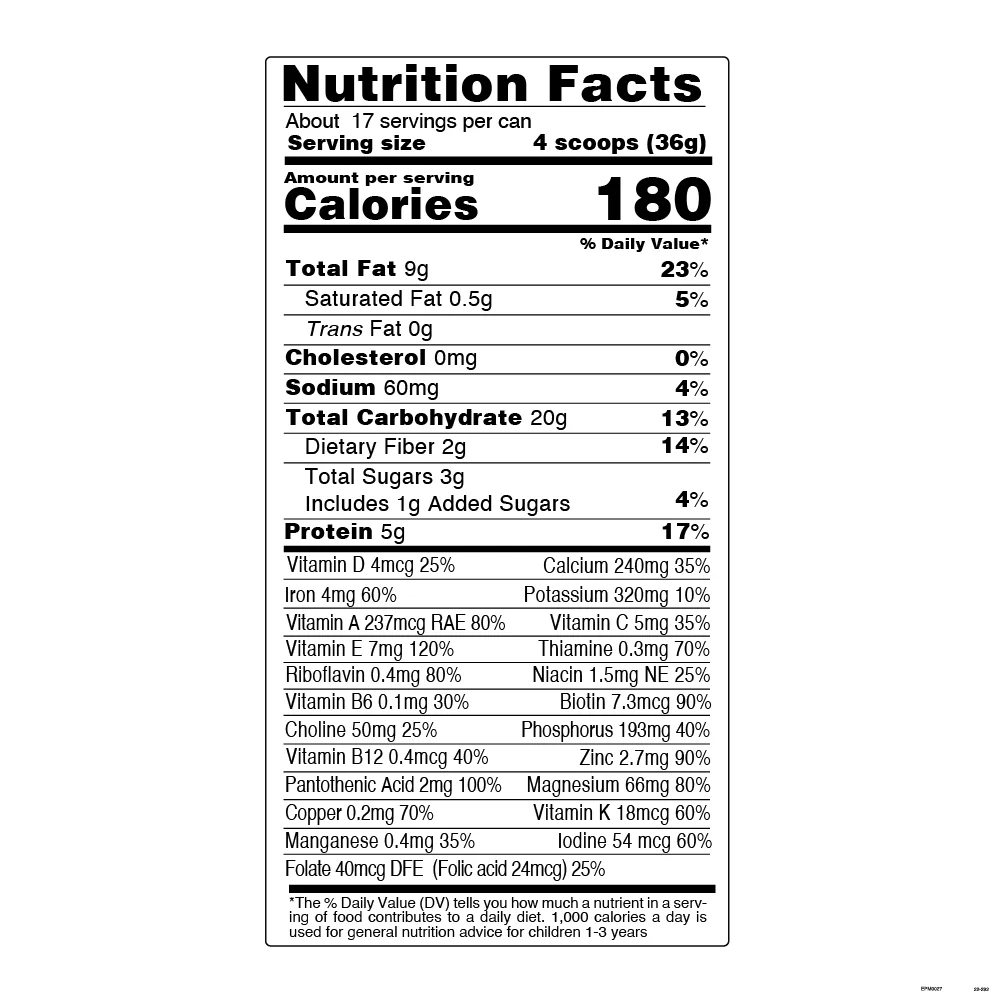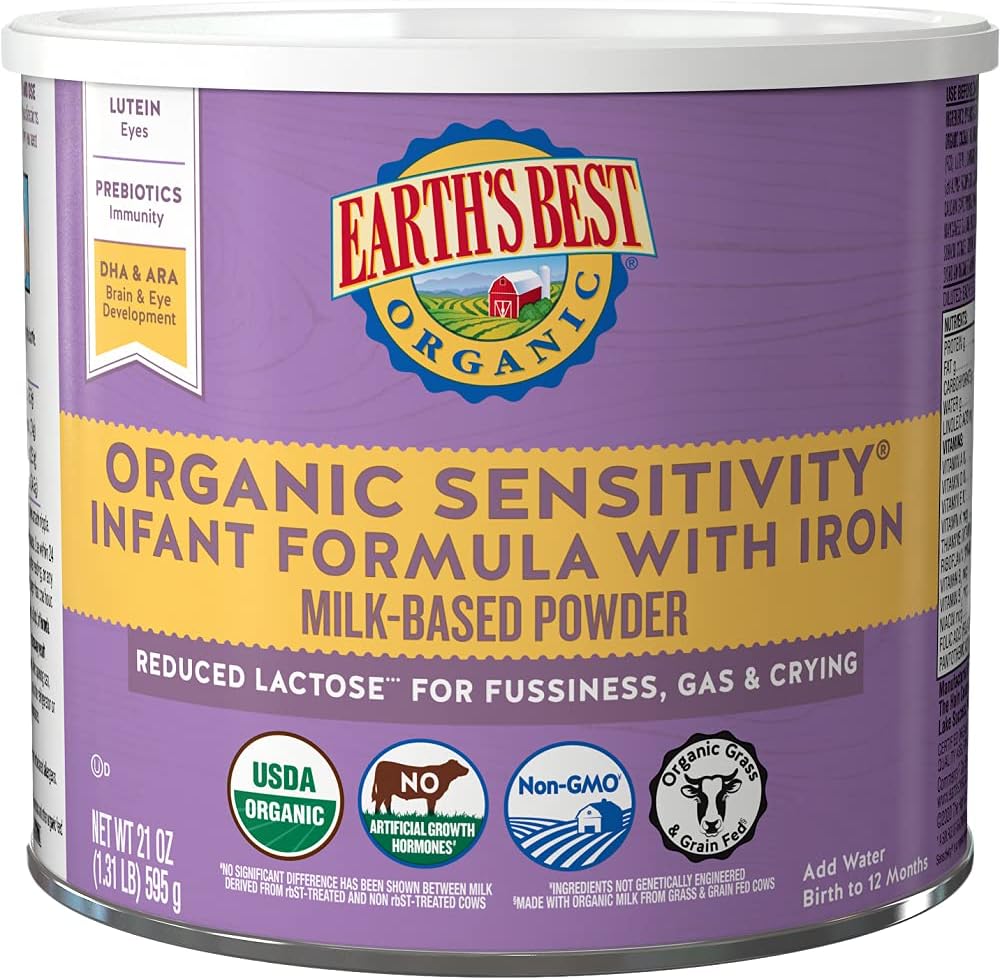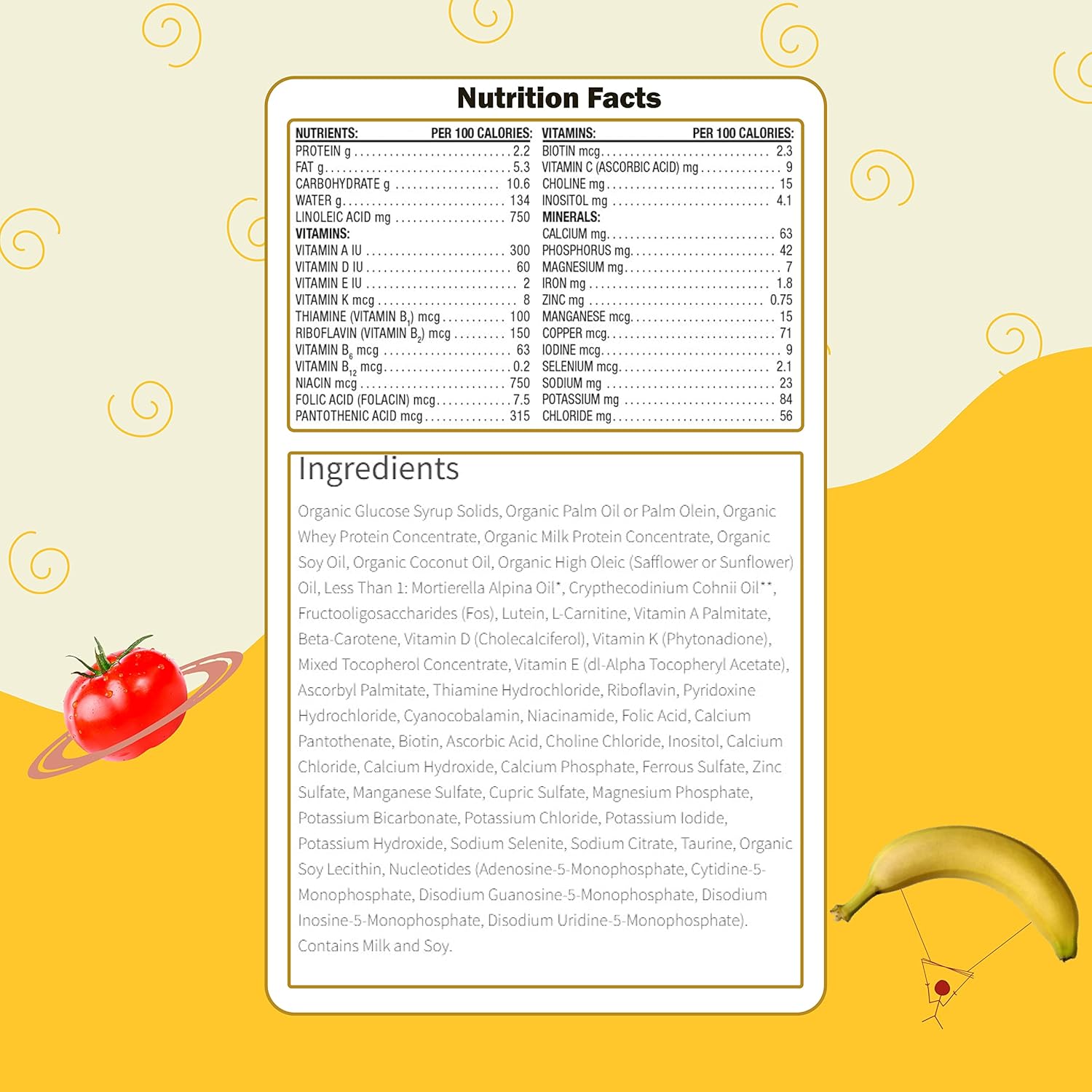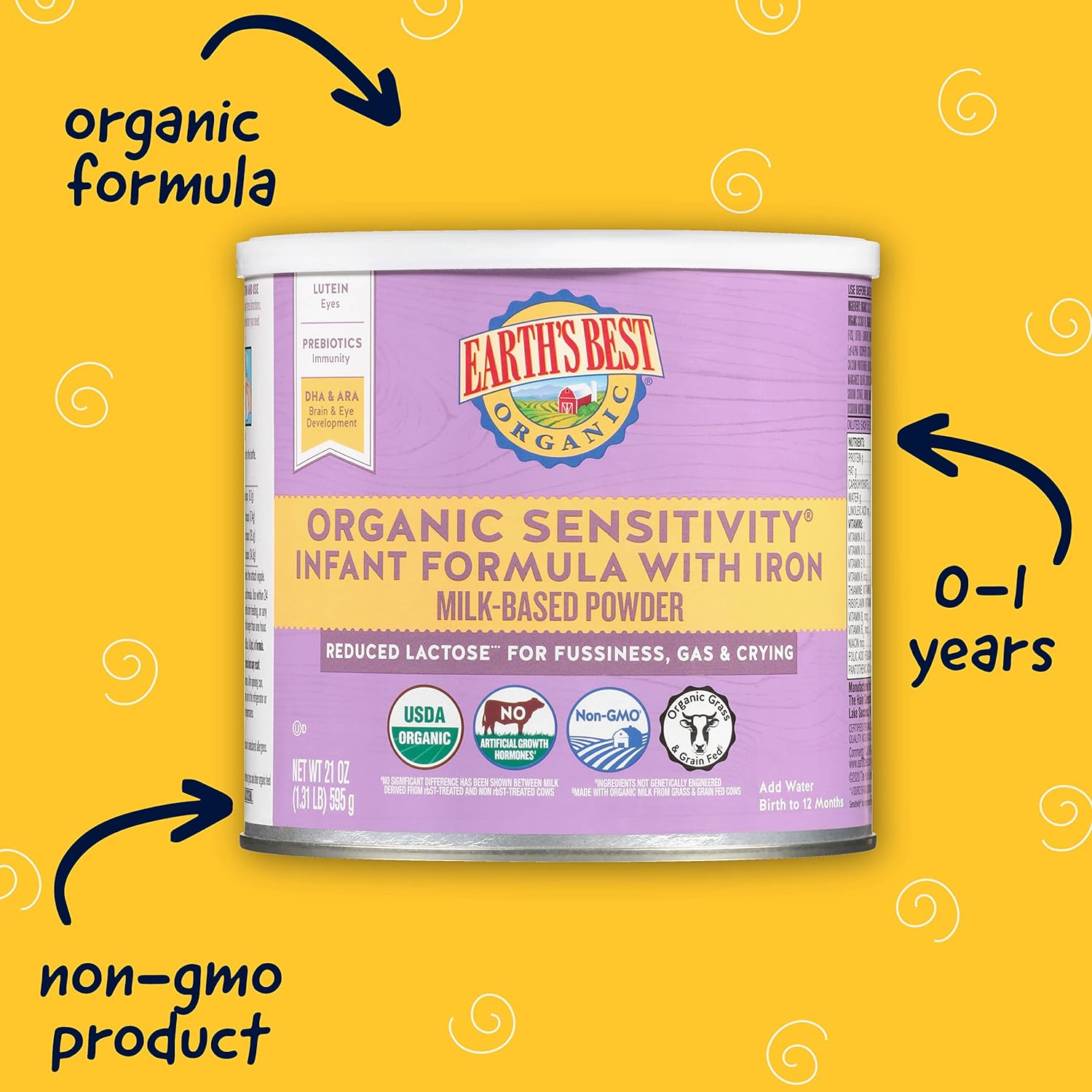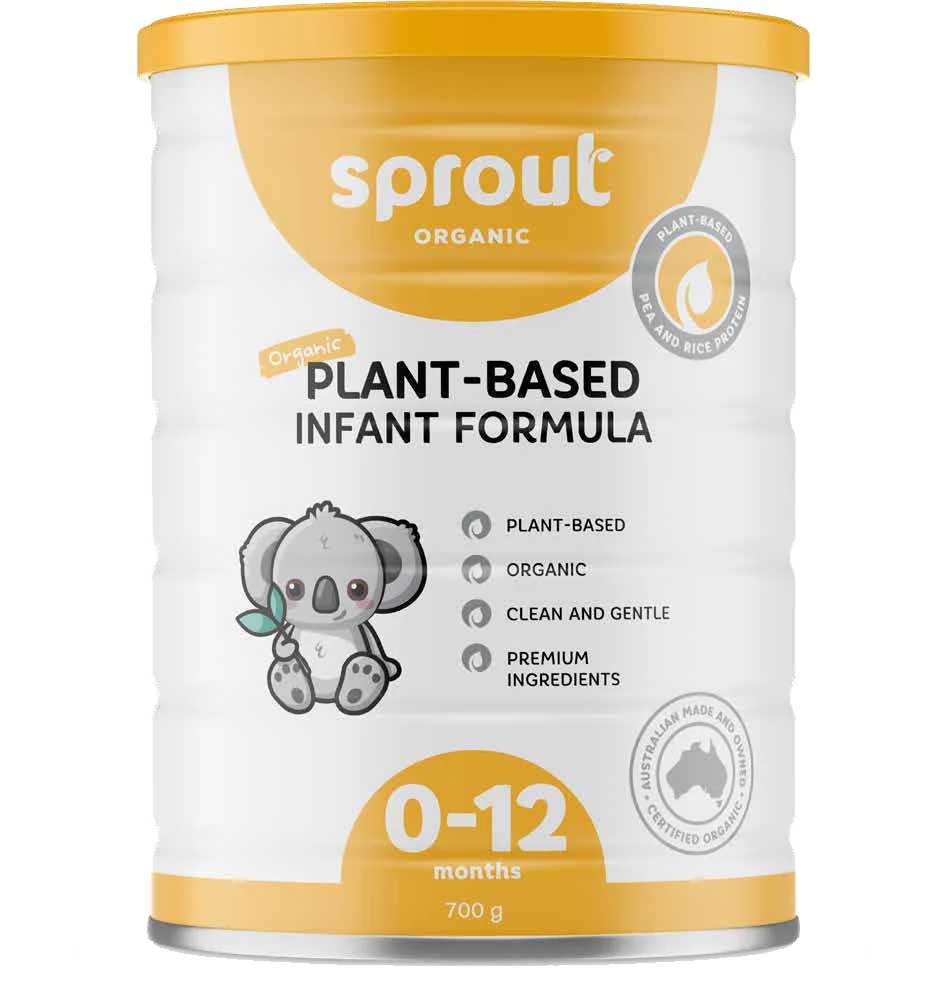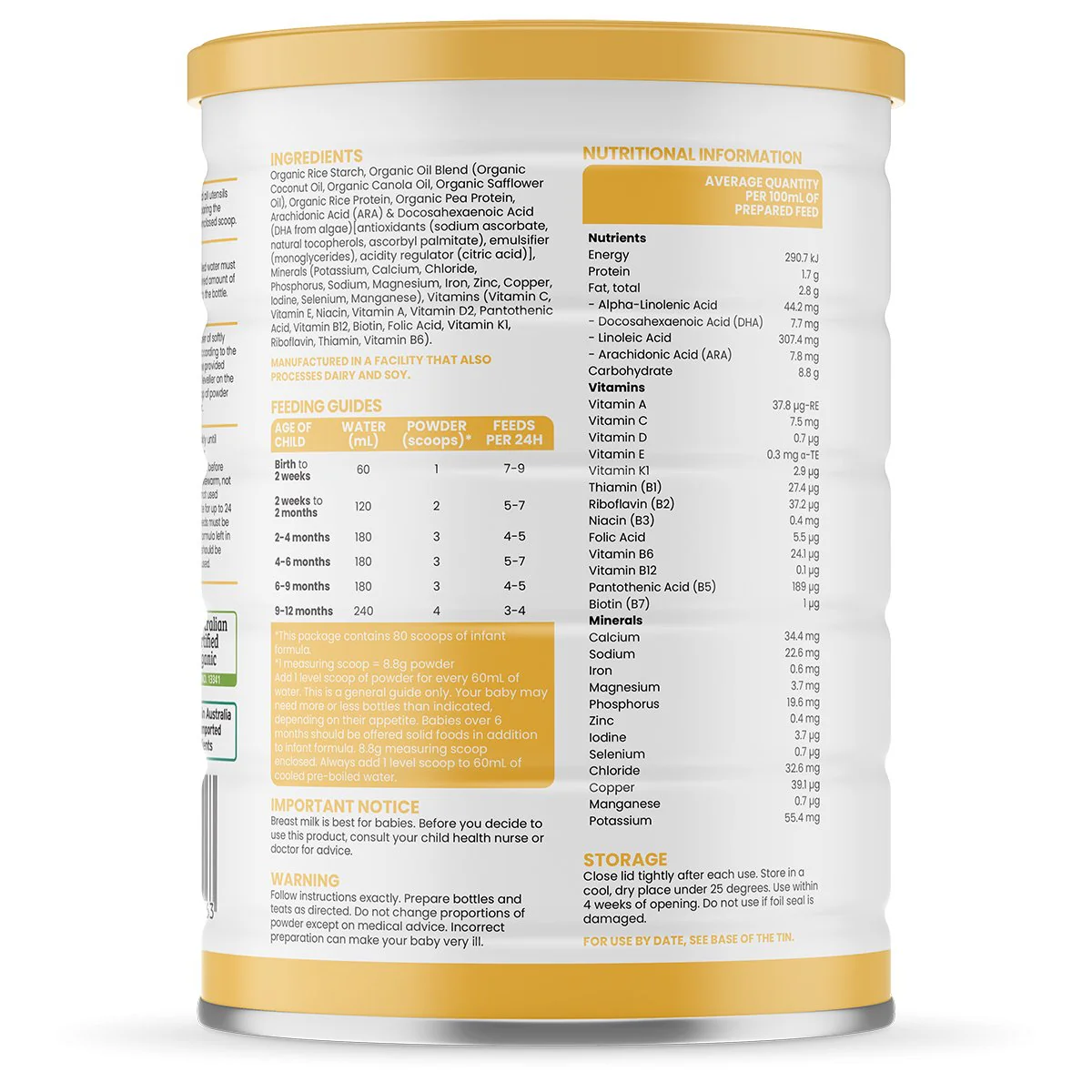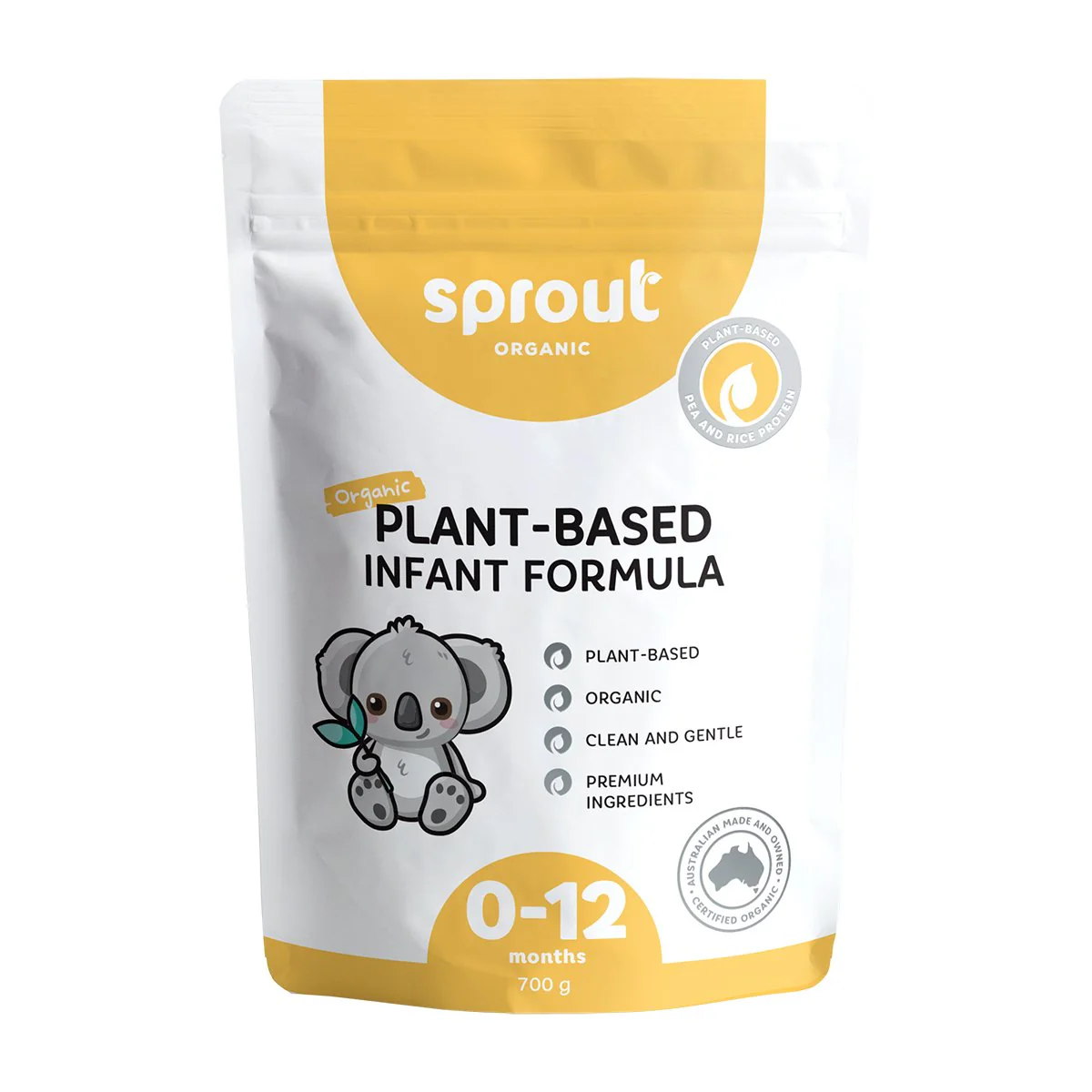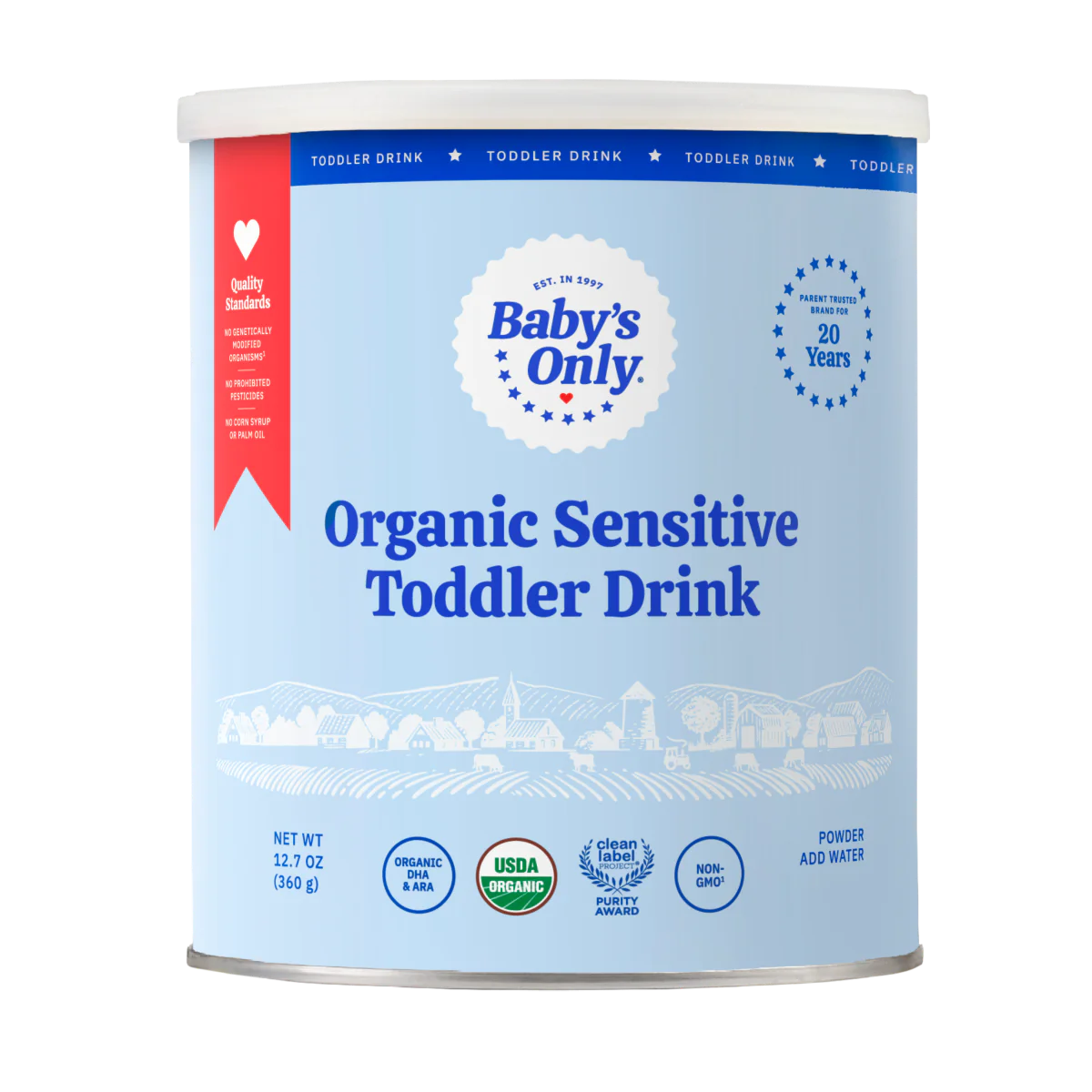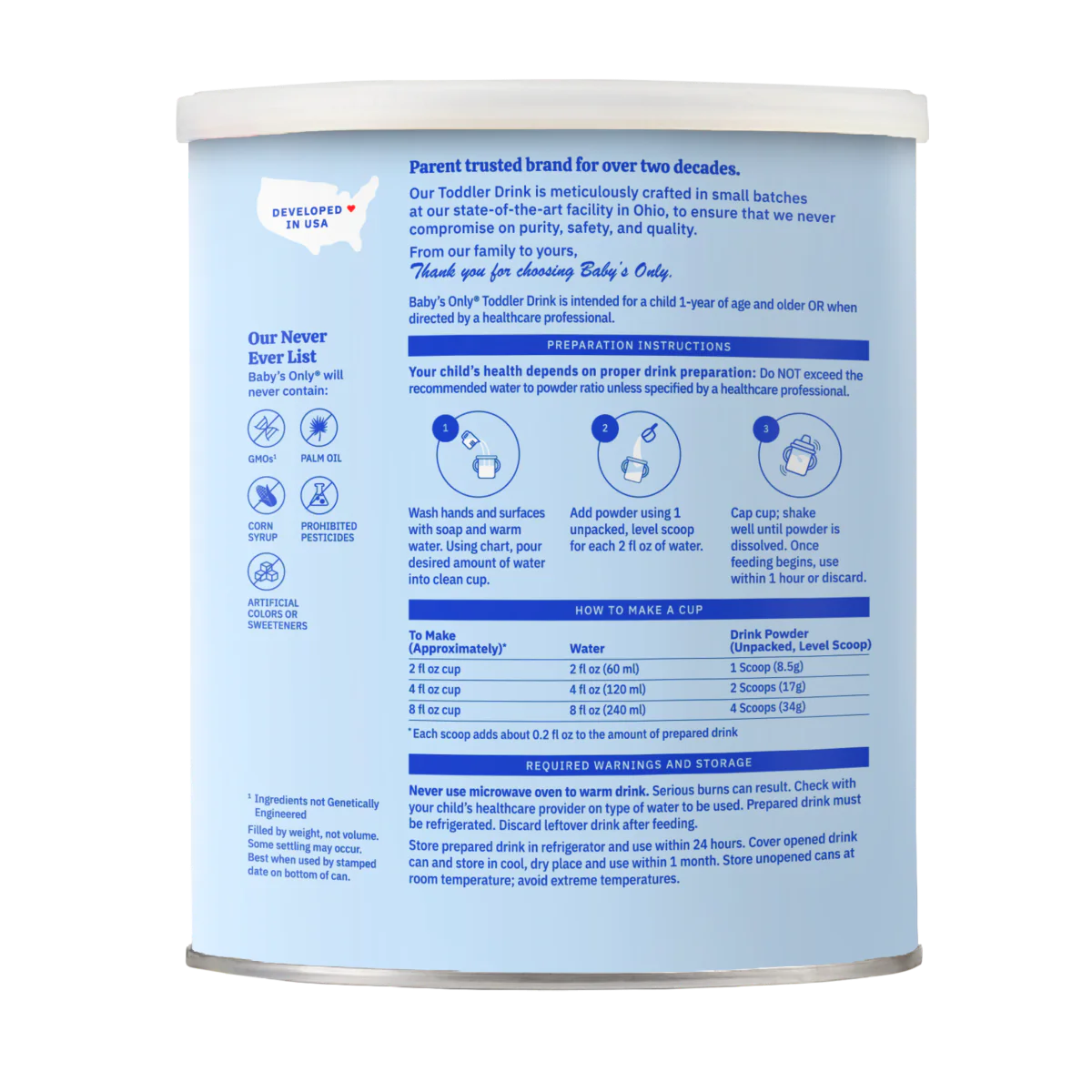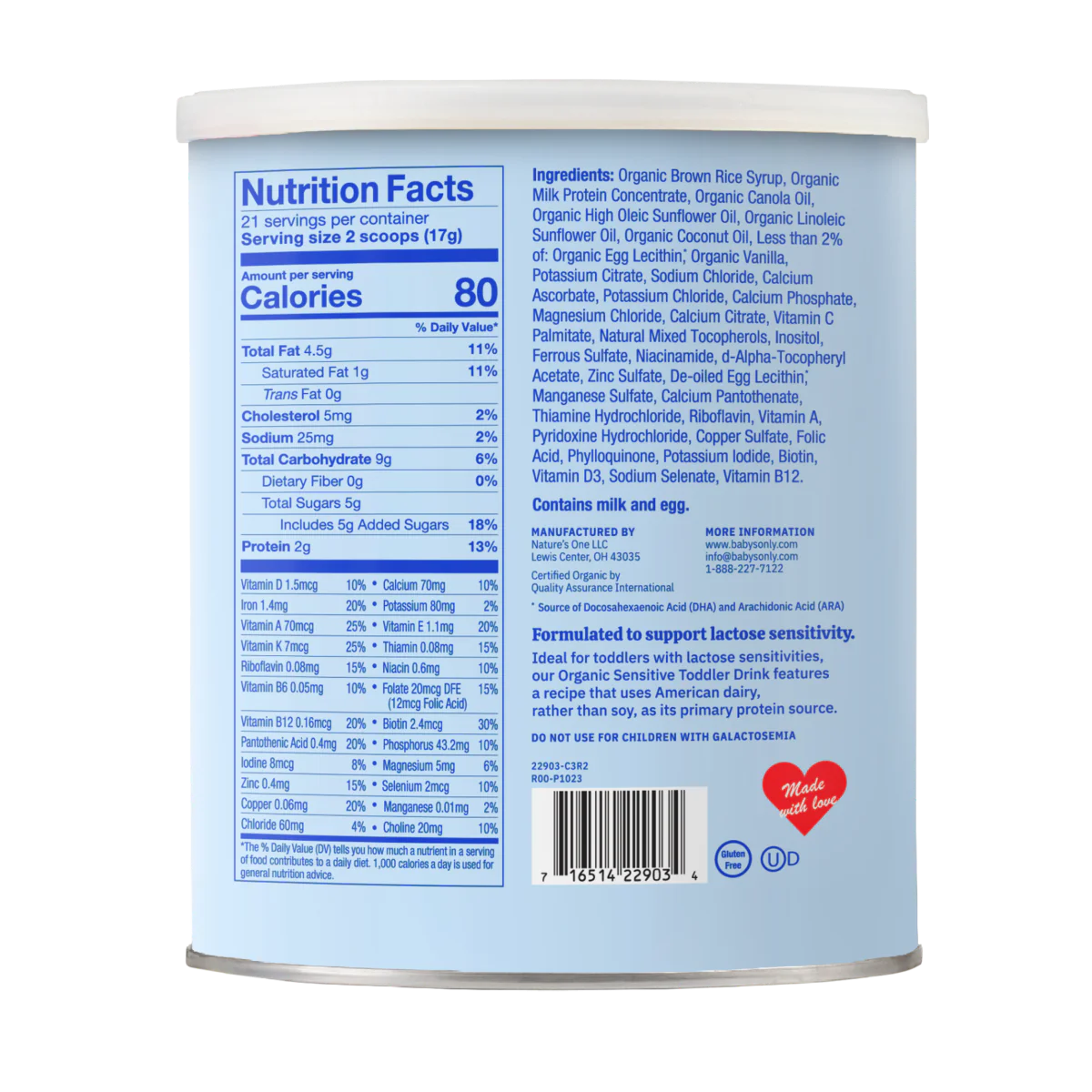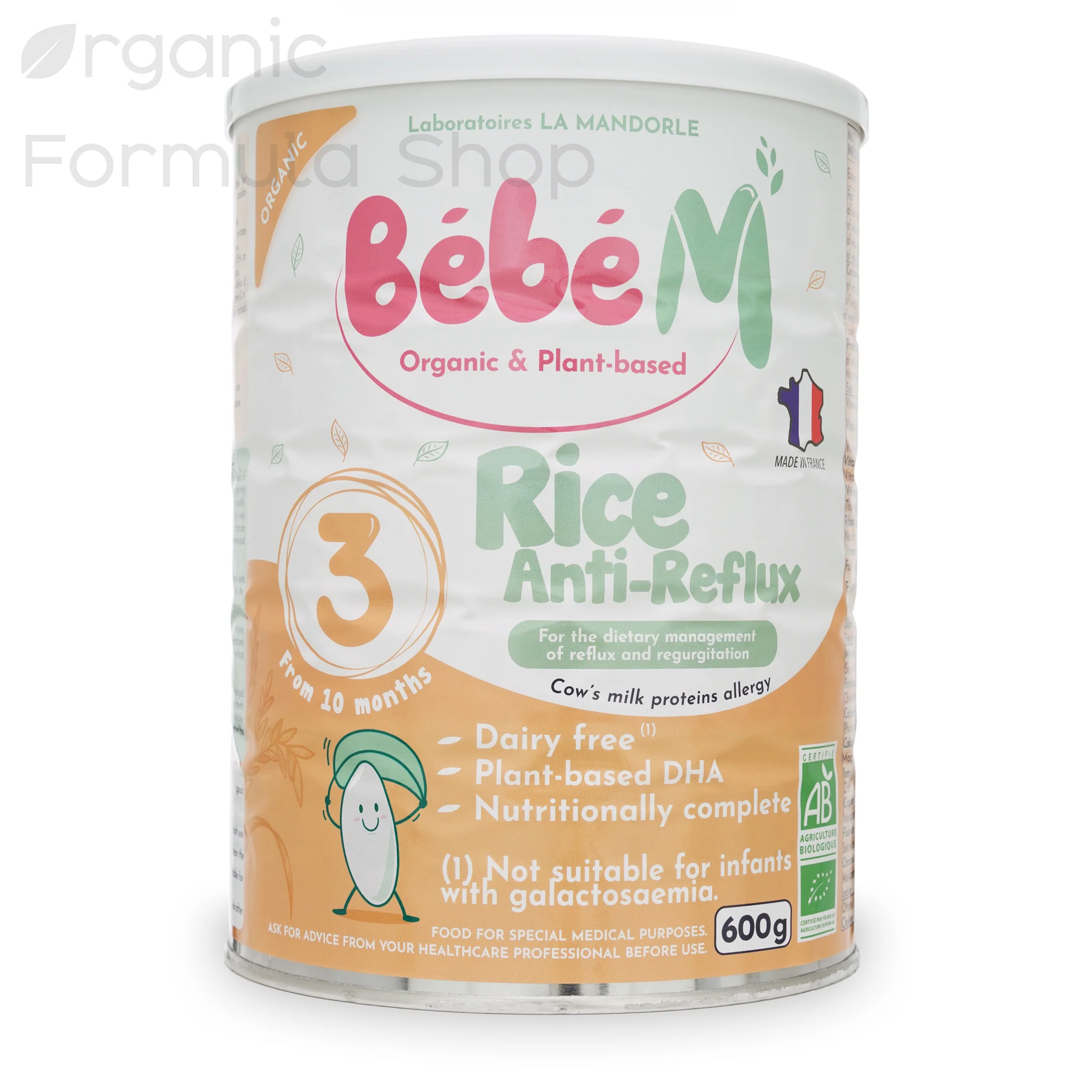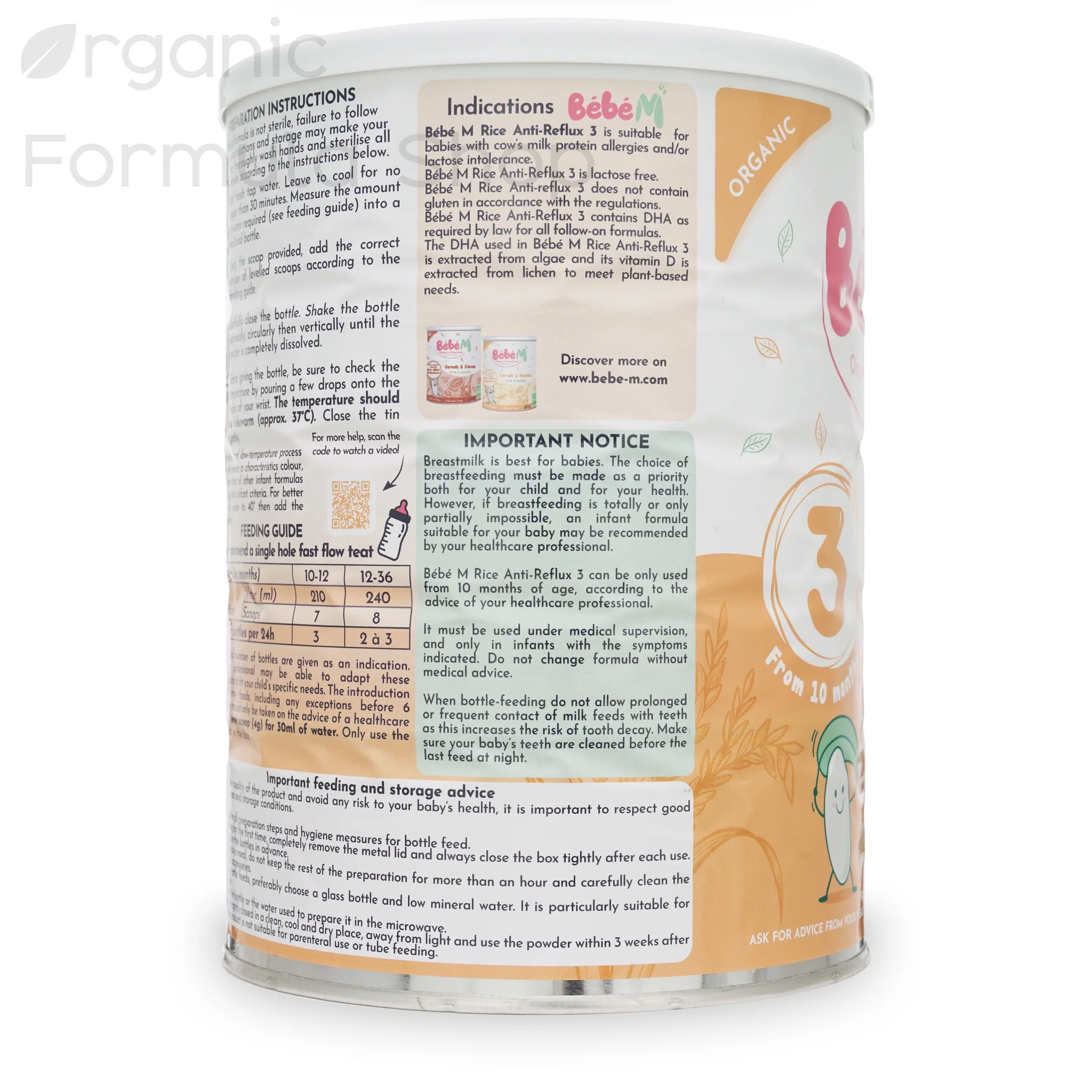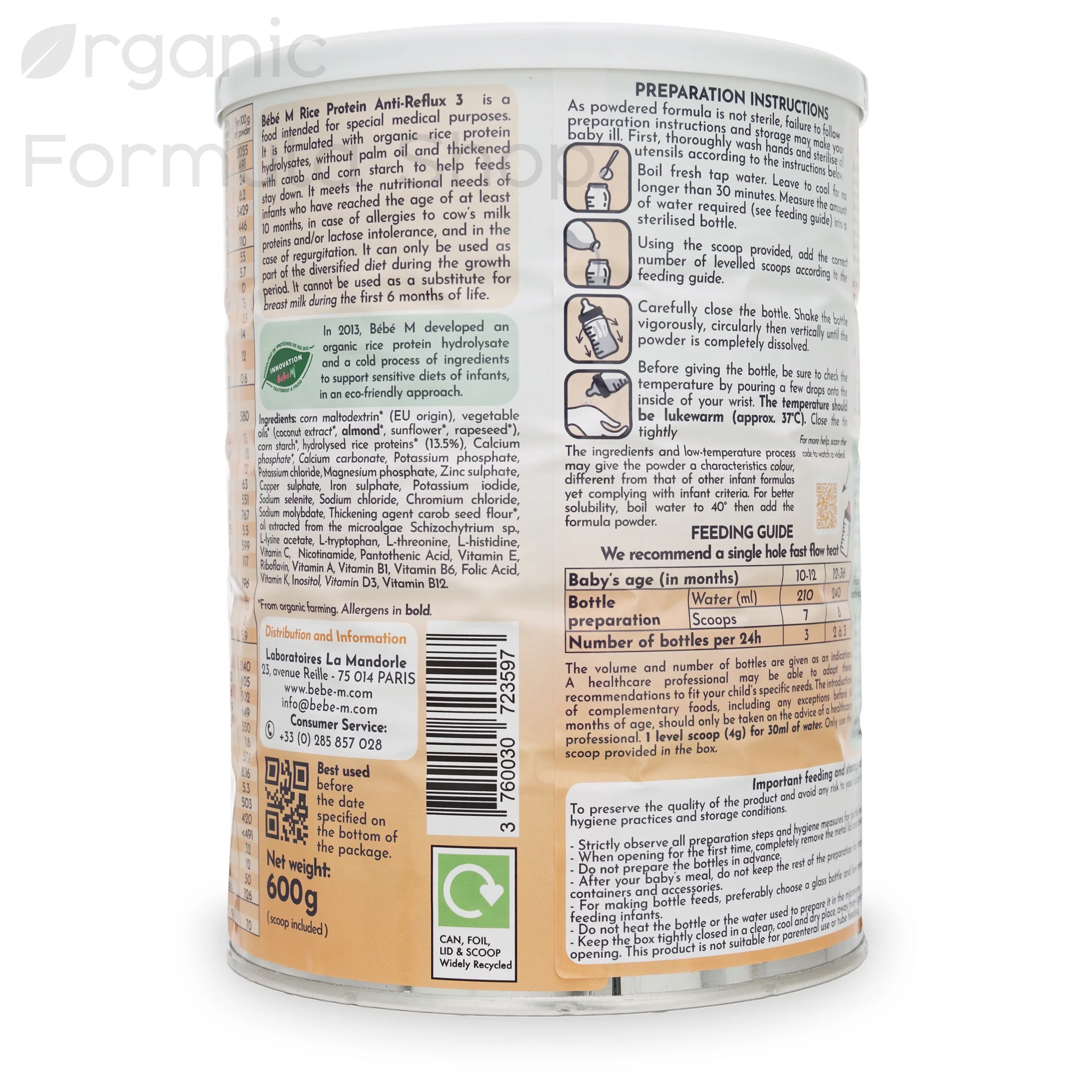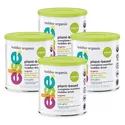5 Best Organic Lactose-Free Formulas: Nutrition for Sensitive Tummies
Is your baby struggling with digestive discomfort? Discover the benefits of lactose-free formula for a happier, healthier little one
Updated September 18, 2024

Are you tired of seeing your little one suffer from tummy troubles? A lactose-free formula could be the answer. Whether your child has a lactose intolerance or you're simply looking for a dietary alternative, the range of lactose-free formula options has expanded significantly.
Let's explore the benefits and considerations of lactose-free formula to help determine if it's the right choice for your little one.
» Nourish your baby's delicate tummy with lactose-free organic formula
Our Pick: Best Organic Lactose-Free Formulas
- Best overall organic lactose-free formula: Else Nutrition Plant-Based Complete Nutrition Formula
- Best grass-fed organic lactose-free formula: Earth's Best Organic Sensitive Baby Formula
- Best plant-based organic lactose-free formula: Sprout Organic Vegan Infant Formula
- Best egg-based organic lactose-free formula: Baby's Only Organic Sensitive Toddler Drink
- Best anti-reflux organic lactose-free formula: Bébé M Organic Rice Anti-Reflux
What Is Lactose Intolerance in Infants?
Contrary to popular belief, lactose intolerance is quite rare in infants. Research indicates that it affects only 2–5% of children under three months old. In most cases, it is resolved within the first year. But, for those affected, the symptoms can be distressing.
Signs of lactose intolerance in babies may include:
- Fussiness
- Excessive gas
- Diarrhea
- Constipation
- Refusing feedings
» Tired of commercial formulas? Explore healthy and organic alternatives
Why Choose Organic Lactose-Free Formula?
Lactose-free formula isn't just for babies with lactose intolerance. Parents may opt for organic lactose-free formula for several reasons:
- Sensitivity Concerns: If a baby shows signs of lactose intolerance, a lactose-free option can help alleviate symptoms.
- Organic Ingredients: Organic formulas ensure that the ingredients are free from synthetic pesticides, herbicides, and genetically modified organisms (GMOs).
- Peace of Mind: For parents concerned about potential chemical exposure, organic formulas offer reassurance.
- Lifestyle Alignment: These formulas provide an option that aligns with their values for families following a dairy-free or vegan lifestyle.
- Environmental Impact: Plant-based formulas may be more environmentally friendly than dairy-based options.
» Learn how to switch from ready-made to powder formula
Organic Lactose-Free vs. Standard Formulas
Reputable organic lactose-free formulas are designed to match the nutritional profile of breast milk and standard formulas as closely as possible. They should contain all essential nutrients, including:
- Proteins
- Carbohydrates
- Fats
- Vitamins (especially Vitamin D)
- Minerals (including Calcium)
Pay special attention to ensure the formula provides adequate nutrients, particularly calcium and vitamin D, crucial for bone development.
» Uncover the hidden truth about store bought baby food
5 Best Organic Lactose-Free Formulas
How to Choose an Organic Lactose-Free Formula
When selecting a formula, parents should consider:
- Nutritional content: Ensure a balanced mix of macronutrients and micronutrients.
- Digestibility: Look for formulas with easily digestible protein sources.
- Added benefits: Consider formulas enriched with prebiotics, probiotics, ARA, and DHA.
- Allergen considerations: Be aware of potential allergens if your baby has known sensitivities.
- Availability: Choose a formula that's consistently accessible to you.
» Discover the signs that formula isn't right for your baby
Tips for Switching to a New Formula
If you're transitioning to an organic lactose-free formula, consider these tips:
- Start Slow: Introduce small amounts of the new formula to gauge your baby's reaction.
- Gradual Transition: Slowly decrease the old formula while increasing the new one.
- Observe: Watch for signs of intolerance or discomfort.
- Be Patient: It may take time for your baby to adjust to the new formula.
- Monitor Growth: Ensure your baby continues to grow and develop appropriately on the new formula.
- Consult your Pediatrician: Discuss major dietary changes with your baby's doctor.
» Check out these tips for a gentle transition from breastfeeding
Nourishing Beyond Intolerance
Infant nutrition continues to evolve, offering a wider range of options to meet diverse needs. Organic lactose-free formulas are just one example of recent advancements. Whether your baby has sensitivities or you prefer an organic approach, there's likely a formula that aligns with your values and provides optimal nutrition.
Beyond addressing sensitivities, many organic lactose-free formulas—like those listed here—offer wholesome nourishment for all growing babies. You can rest assured that your child is getting the best start, regardless of their dietary requirements.
» Choose nourishing lactose-free organic formula for your baby's sensitive tummy
The content and advice provided in this article are for informational purposes only and are not a substitute for medical diagnosis, treatment, or advice for specific medical conditions.
Always consult a pediatrician to understand your child's needs. The article expresses the views of the article's editor.








